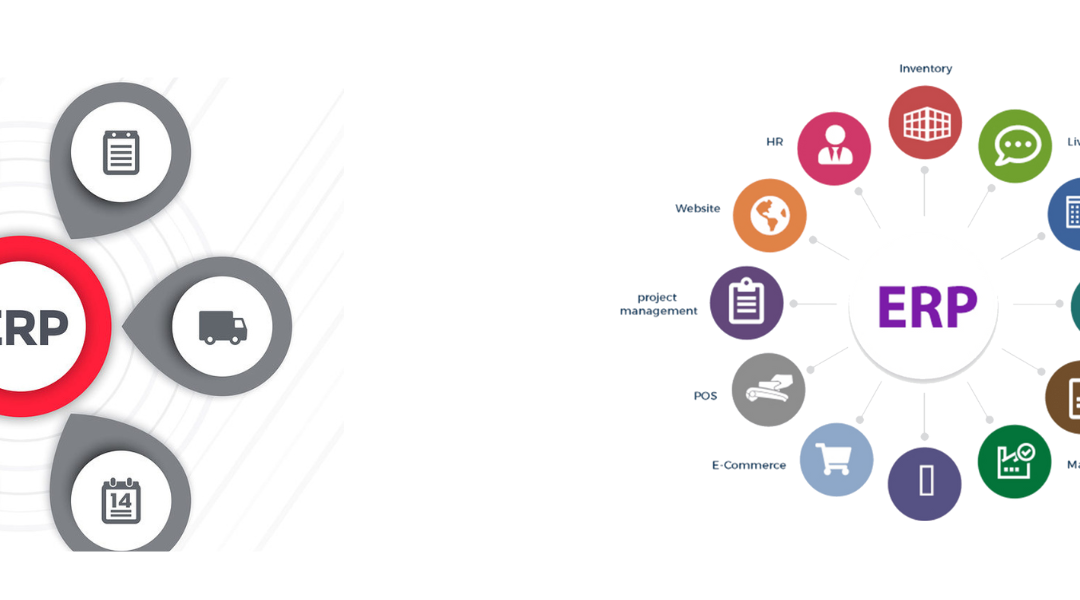An ERP software system is among the most significant investments a company can make. It is confirmed to be a powerful solution that impacts all business areas, including manufacturing, human resources, marketing, accounting, and more.
Enterprise resource planning (ERP) has evolved to match most business operations, such as procurement, human resources, accounting, and manufacturing. In addition, the front office is also using modern processes like e-commerce, sales force automation (SFA), and marketing automation for operations.
Businesses rely on ERP solutions to cut costs by eliminating redundant processes and automating repetitive tasks. The system also helps companies access vital data for faster decision-making. As businesses adapt their operations to meet current market demands, software vendors must also adjust their products and services to meet these demands. ERP systems, in this situation, have evolved in the following ways.
Cloud-based ERP Systems
It is one of the latest trends in ERP Systems. Businesses are rapidly migrating from on-premise ERP to on-cloud ERP systems. Cloud-based ERPs are helping organizations be more efficient and lower operational costs in human and material resources, resulting in increased revenue.
Integration with Other Applications
Modern ERP systems are essential to a business’s digital transformation, but are just one component of more enormous investments. Companies can improve their primary processes and enhance their order flows by integrating their ERP systems with other applications, such as e-commerce, leading to increased order fulfillment and revenue.
Mobile Access
Undoubtedly, traditional ERP systems have offered some support with mobile access. Nonetheless, the situation has rapidly changed. Mobile apps are now more popular, and developers are enhancing them more and more. ERP systems have evolved, allowing users to access vital data on the go. You can now access server-side and client-side tasks regardless of time and place.
Evolved mobile ERPs have fostered the collaboration of teams in different time zones and locations, resulting in more value and productivity.
AI and Machine Learning
Incorporating artificial intelligence and machine learning into modern ERP systems is helping businesses further enhance their processes and provide greater personalization; while only a few ERP solutions were combined with AI in the past, future trends indicate that most ERP systems will have machine learning and AI embedded. This transformation will enable businesses to enjoy more efficient processes and gain actionable insight.
Blockchain Technology
Integrating Blockchain technology into ERP software is pushing its benefits to a higher level. With Blockchain technology, ERP systems can create smart contracts and automate processes without the need for additional employees or legal departments. Blockchain technology also enables organizations to validate transactions and generate a secure data record shared among multiple nodes. Additionally, the technology can verify and authenticate identities and detect unauthorized attempts or other security challenges in real-time.
Real-time Data Analytics
Unlike past ERP systems, current systems have real-time data analytics features that enable businesses to make quick data-driven decisions. Integrating analytics and big data has created new revenue sources for cloud ERP suppliers and allowed enterprises to prioritize analytics-based solutions, improving their financial performance and enabling more effective execution of plans. Businesses can access real-time information and make decisions at all levels with integrated data visualization, ad-hoc reporting, and analytics capabilities.
Future of ERP Software
In the future, more businesses will likely turn to cloud ERP systems to gain the agility and speed they need to compete in the market. Companies already using cloud ERP systems will look for more ways to utilize the capabilities of the cloud, and organizations will seek ERP software that can support remote work. The demand for mobile ERP functionality will also likely increase to support workflow automation and remote training.

